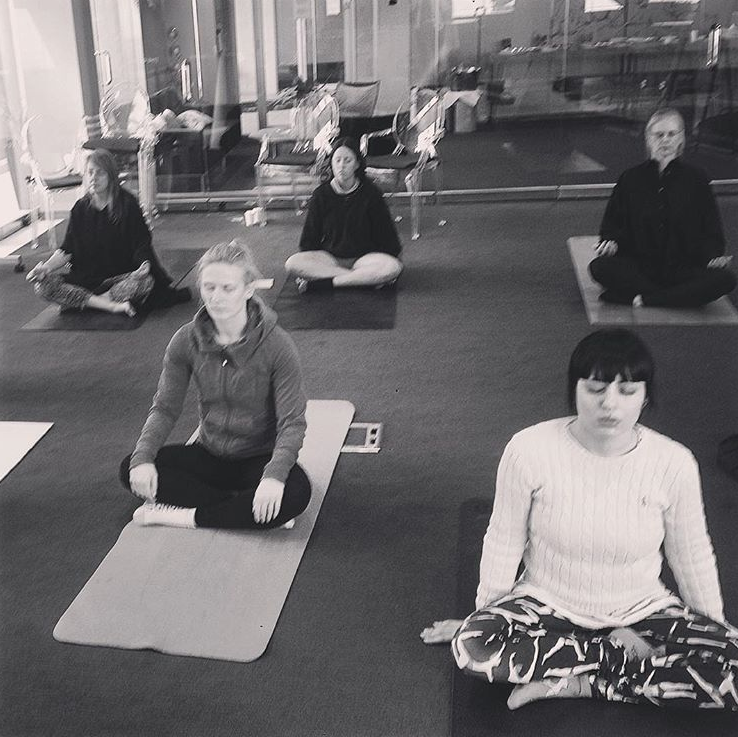
Aprivé Wellness Blog
How Stress Leads to Premature Aging
How to Stop Stress from Ruining Your Body
None of us want to look older than we area. Sadly though, our modern stressful lives are contributing hugely to the premature ageing of our skin, brains hearts, tissues and organs. How?
What Happens When You’re Stressed
When the stress response is activated too much, it can cause wear and tear on your body, called allostatic loading. This load can lead to everything from heart disease to changes in your brain. Yep, it’s that serious.
When you’re stressed, your body arms itself, preparing you for battle or a quick getaway. Your blood flow increases which elevates your blood pressure, so your heart pumps faster to deal with the faster blood flow.
The quick blood flow streams away from the organs, and floods to the extremity muscles to prepare you for a fight.
These changes lead to an increase in metabolic rate, your glucose-based energy stores are mobilised, and you blood gets thicker to stop you bleeding (in case of battle wounds)
In preparation for more battle wounds; your inflammatory hormones: cortisol, cytokines and interleukins are mobilised. These handy hormones help with tissue damage repair. Perfect for a post-battle fix up.
Stress and Modern Life
While these physiological changes are handy to combat a physical threat, they’re almost useless in our everyday, sedentary lives. Because of over-stimulation from devices and media, stressful jobs and always being ‘busy,’ the stress response is activated far more regularly than it should be.
When you’re stressed regularly, the biochemical changes in the body can lead to tissue damage, and serious, chronic conditions.
The Effect of Stress on Your Body
Stress includes a number of biochemical and physiological changes in the body that can create lasting damage. By putting your body under large amounts of allostatic load, your organs can suffer. Here are just a few things that can happen from being stressed long term, and what they mean for you.
Your immunity decreases: you’ll get the flu more often
The stress hormone, cortisol, can cause your bones to thin: You can fracture bones more easily
Your arteries harden, and develop fatty plaques: atherosclerosis: Your risk of heart attack and stroke skyrockets
Your metabolism goes out of whack (metabolic syndrome): Your blood lipids (fat) and glucose levels rise, making you more at risk of Type 2 diabetes and putting on weight around the middle.
Your amygdala, the fear and stress centre of the brain, grows and becomes more active in everyday situations.
Your brain ages faster, causing atrophy (or cell loss of brain tissue) because of neurochemical changes: You’re more likely to develop Alzheimers.
Your digestion changes; with less regular blood supply to the intestines, your digestion worsens: You can develop IBS and feel bloated regularly.
How To Combat Stress: The Solution
It’s not all doom and gloom. Now you know that stress actually creates real, detrimental damage to your body, you can change. It’s all down to mindfulness. Now before you shake your head, thinking I’m just another hippie, hear me out.
As a physiotherapist, evidence-based medicine is essential to my practice. Thanks to recent research, the evidence around effective strategies for stress relief is everywhere, and it all points to mindfulness; which essentially means regular practice of meditation, or focusing the mind.
Read the evidence with links to 39 research papers here.
Mindfulness and Stress
Recent studies have shown mindfulness can help stop the inappropriate stress response. When you’re sitting at your desk all day and there’s no bear to run away from, or adversary to fight, a stress response to everyday tasks is inappropriate and over active. By practising mindfulness with even a five minute meditation each day, you can decrease your risk of stress-related damage.
Mindfulness has been proven to create biochemical changes:
Decreases inflammation
Decrease risk of depression and anxiety
Decreases cardiovascular stress
Decreases DNA aging and improves genetic repair
Lower risk of chronic illnesses
Thanks to brain imaging, we’ve also discovered grey matter in the brains of long-term meditators actually becomes thicker, particularly in the areas of sense perception, memory, and executive functioning.
Studies have shown mindfulness might even be able to combat the effect of ageing on the brain!
How Does Mindfulness Decrease Stress?
Neuroplasticity is the most incredible trait of our brains; it means we can re-wire our brains constantly throughout our lives. What does this mean for you? It means you can learn new skills, languages or sports, un-learn bad habits, and re-train your brain to do amazing things.
Essentially, neuroplasticity (our ability to learn new skills) is the scientific basis behind ‘practice makes perfect.’
When you practice something, your brain creates new activation patterns for that activity. Once you’ve practiced something many times, that skill becomes easier, almost automatic. When you watch a pianist perform a piece they’ve played for many years, doesn’t it look effortless? It’s not, but their brains have learned that piece of music so well, the wiring is all set up. All they need is focus, and they can play it over and over again, getting better each time.
Practicing mindfulness is the same as any other skill. The more you do it, the better you become. You get better at:
Self-compassion
Kindness
Compassion for others
These handy skills make you less likely to suffer from depression and anxiety.
Did you know: Mindful-based cognitive therapy has been shown to halve the relapse rates of those with depression, from 78% to 36% !
Science-wise Mindfulness makes you better at:
Focus. It improves your ability to focus on a single thing at once: instead of multi-tasking (which makes us mediocre at lots of things at once, instead of great at one thing at a time!)
Attentiveness
Problem solving
Critical thinking
Emotional regulation
Managing stress
That last point is key. When you can manage stress, you can stop the biochemical changes stress places on the body, and prevent the nasty side-effects of chronic stress.
How to Practice Mindfulness
I like to keep it simple ans use simple apps to help. Here are my top faves:
Headspace (free 10-time trial)
The Smiling Mind (free)
and guided meditations on Youtube!
If You Don’t Have Time For Mindfulness To Manage Your Stress
Make time! I know that's not the answer you're looking for, but it's the only answer. 5 minutes a day is nothing! You have 288 lots of 5 minute intervals throughout the day. I guarantee you can find one of those 288 time slots to try meditation.
Tip: Get a calendar (Google calendar online is my fave) Whenever you do a 5 minute meditation - write 'I did it!" in YELLOW on your calendar. By the end of the week, if you have five yellow markings - You’re doing great! It doesn’t have to be everyday to start, but just start somewhere.
Stress creates physiological damage to your brain and body, yet our modern lifestyles have glorified stress, over-working and constant busy-ness. Look after your body, and your brain by easing stress with just 5 minutes a day of mindfulness. Make the change. It’s your body, no one else's. It's up to YOU to look after it. You only get one after all!
Want more tips on living well? Join our community full of people like you looking for strategies to live, move and feel better by signing up below!




